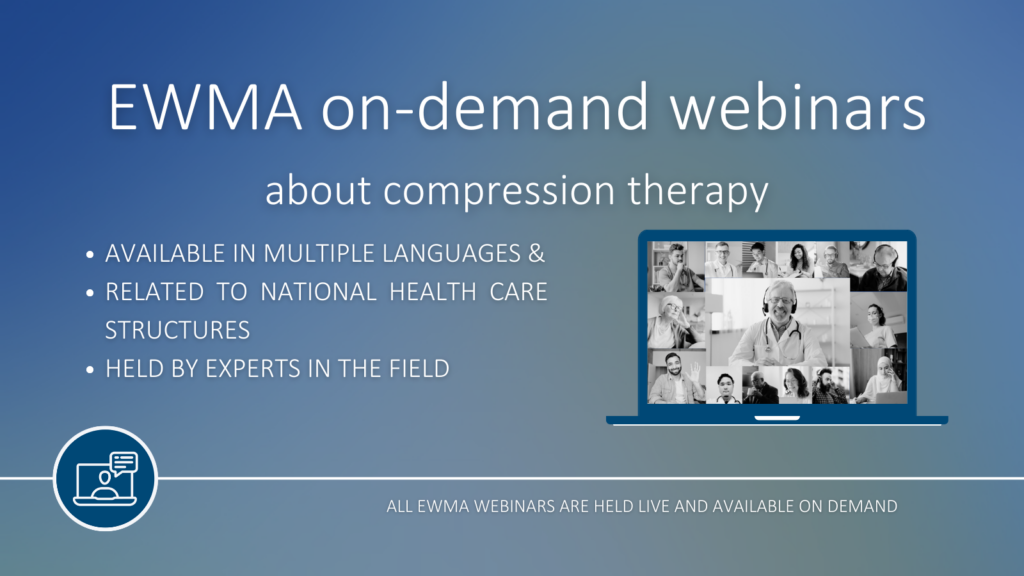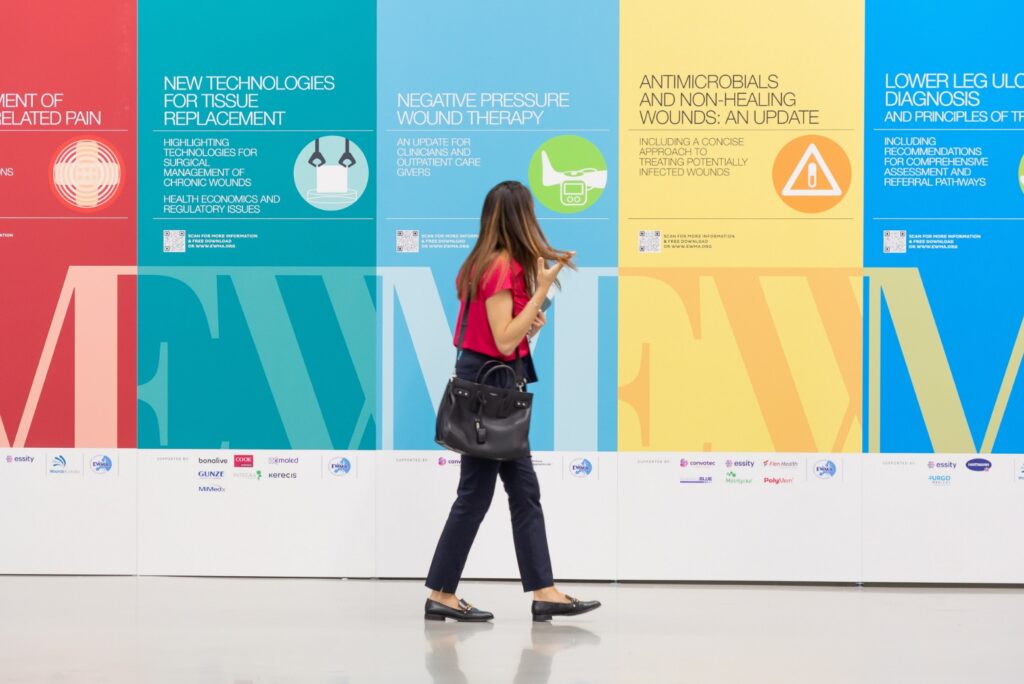At this site, we will provide links to relevant online education or face-to-face courses in compression therapy offered across Europe and in different European languages.
The EWMA e-learning module ‘Compression Therapy in Wound Management’ offers a basic introduction to compression therapy in wound and lymphoedema management. It is free of charge to access.
To access the e-learning course, please ensure that you are logged in. Members of EWMA can use their membership login credentials. If you are not a EWMA member, you may either create a new profile or use your existing e-learning profile. An e-learning profile can be created free of charge here.
The EWMA Masterclasses on Compression Therapy are held annually before the EWMA Conference. The masterclass targets all health care professionals working with compression therapy in wound management.
In this masterclass you will gain a comprehensive understanding of the latest advancements in compression therapy techniques and best practices across Europe, via participaton in carefully designed workshops and insightful presentations by leading experts in the field.
During the three simultaneously run workshops, you will dive deeper into:
The compression therapy webinar is for health care professionals with limited specialization in wound management. The aim is to raise awareness to the importance of this critical therapy so that we can increase use across the UK.
The compression therapy webinar has been held in different languages. Find your prefered version down below.


You are welcome to send us material that you would like us to share here. The material will be reviewed and endorsed by the responsible working group.
The working group will also develop new materials, to fill the gaps in existing materials.
Join more than 25,000 international colleagues!

European Wound Management Association
© All Rights Reserved 2024